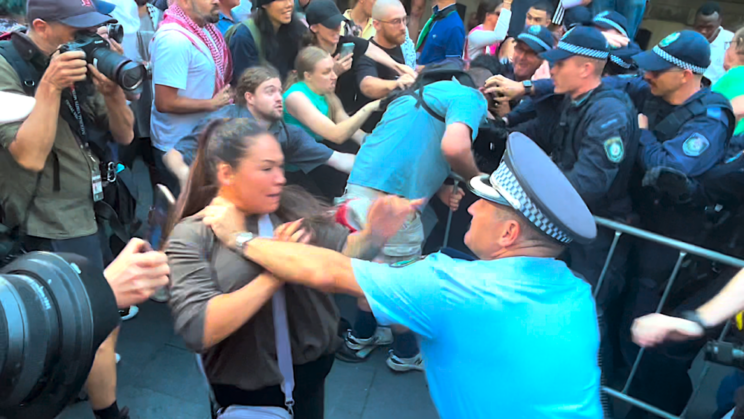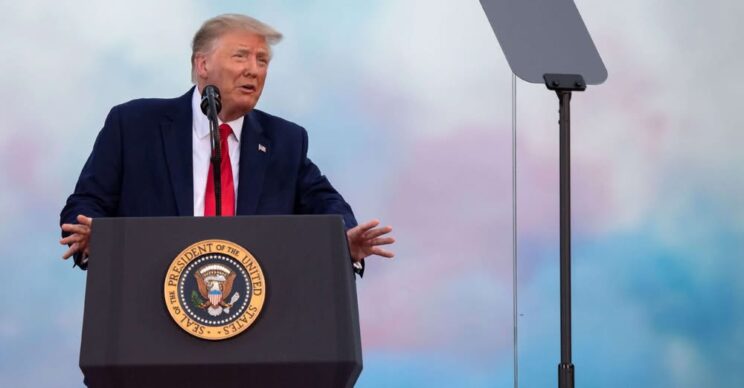BREAKING: Breathe easier! US and Iranian officials report progress at nuclear talks today. Iran will return in two weeks w/detailed proposal to address remaining gaps. Garland gives me time for backgrounder on US-Iran nuclear, including intelligence role.
Ukraine Talks in End Game
Medinsky in Geneva to Negotiate
Putin’s trusted aide Vladimir Medinsky leads delegation in Geneva to negotiate with US and Ukraine. Russian Dep. Foreign Minister Mikhail Galuzin & Kirill Dmitriev also part of US team. Galuzin has just blasted Kyiv for undermining US efforts toward peace.
Why War With Iran is Not Imminent or Inevitable
Why War With Iran is Not Imminent or Inevitable: My Take
Ray McGovern, February 16, 2026
When virtually all guests on Judging Freedom have been saying for months that a US attack on Iran is inevitable, and the moderator says it is not a case of IF but WHEN (as in the title given one show this morning: “Just How Imminent is the Attack on Iran”), it becomes recognizably difficult to “turn the battleship around”, as we used to say. Even if more caution were indicated.
So far today, no one has mentioned:
1— Less than 25 percent of Americans want an attack on Iran, acc to very recent polls;
2— US citizens’ support for Israel has plummeted
3— Trump told Netanyahu to pound sand just five days ago. “I insist on negotiations; I made no new agreements with Netanyahu”
4— Does Trump want to start an unwinnable war just months before the mid-terms? With US body-bags? For Israel?
5— Iran CAN close the Strait of Hormuz; in war circumstances, they probably will.
6— Russia and China have not been given the importance they deserve – far from it. For example … I asked a friend/analyst of China for comment earlier this morning; pls see his take in the following:
The strategic implications for the US are critical. The “maximum pressure” strategy is being bypassed by a “maximum integration” strategy between Tehran, Beijing, and Moscow.
China currently imports 1.4 million barrels a day of Iranian oil. The “Persian Fortress” is a matter of national industrial life for China. As Modern Diplomacy explains, “Beijing views the Mossad’s success in penetrating the Iranian interior as a direct threat to its economic interests and its Belt and Road Initiative.” Moscow is careful to exclude a “mutual defense” commitment to Iran to avoid being dragged into a conventional war. Its technical assistance ensures Iran remains a thorn in the side of Western interests, distracting US resources away from Eastern Europe.
The US strategy of isolating Iran is now a dead-end street.As Joe Kawly explained in an article published by Alhurra, “China enables endurance, not escalation… it helps Iran sustain capability while staying below the threshold that would trigger direct US retaliation.” The US is now faced with a Middle East in which the “Axis of Resistance” is now a technologically buoyant front supported by the world’s second-largest economy. As “round two” approaches, any attack on Iranian territory now faces a wall of Chinese sensors and a Russian alliance that has now gone past the point of no return. The Middle East may have officially lost its uncontested airspace. [Emphasis by RM]
Optimistic About Diplomacy with Iran
Nima & I talk Iran, Ukraine. I give glass-half-full analysis that Trump will continue to “insist” on diplomacy on Iran. Also discuss different roles of military analysts (enemy capabilities) and political analysts (enemy intentions) in light recent history
Mounted Police Charge Australians Against Genocide
Australians against genocide are charged by mounted police as President Herzog visits. Consortium News Editor Lauria is on scene w/camera https://x.com/Consortiumnews/status/2020972369381408913. Will there be a suitable “Welcome Committee” to greet Netanyahu when he arrives in DC today? https://consortiumnews.com/2026/02/09/police-attack-anti-herzog-protesters-in-sydney/
Cheating in Morality Class
Netanyahu Rushes to Washington
Mr. Netanyahu Goes (AGAIN) to Washington – in a rush! Will he try to get Trump to attack Iran? I doubt it this time. Netanyahu wants to hear directly from Trump why he labeled the US-Iran talks in Oman “very good”. Witkoff role on Ukraine also discussed.
Iranian Nuclear Capabilities
Focus was on Iran nuclear, with cameo by the late CIA Iran-Contra operative Dewey Clarridge (indicted on 7 counts of perjury, pardoned by Bush Sr.) in a July 2015 clip. Clarridge: “Saudis already have nuclear bombs, or dibs on them, or access to them” Huh?



